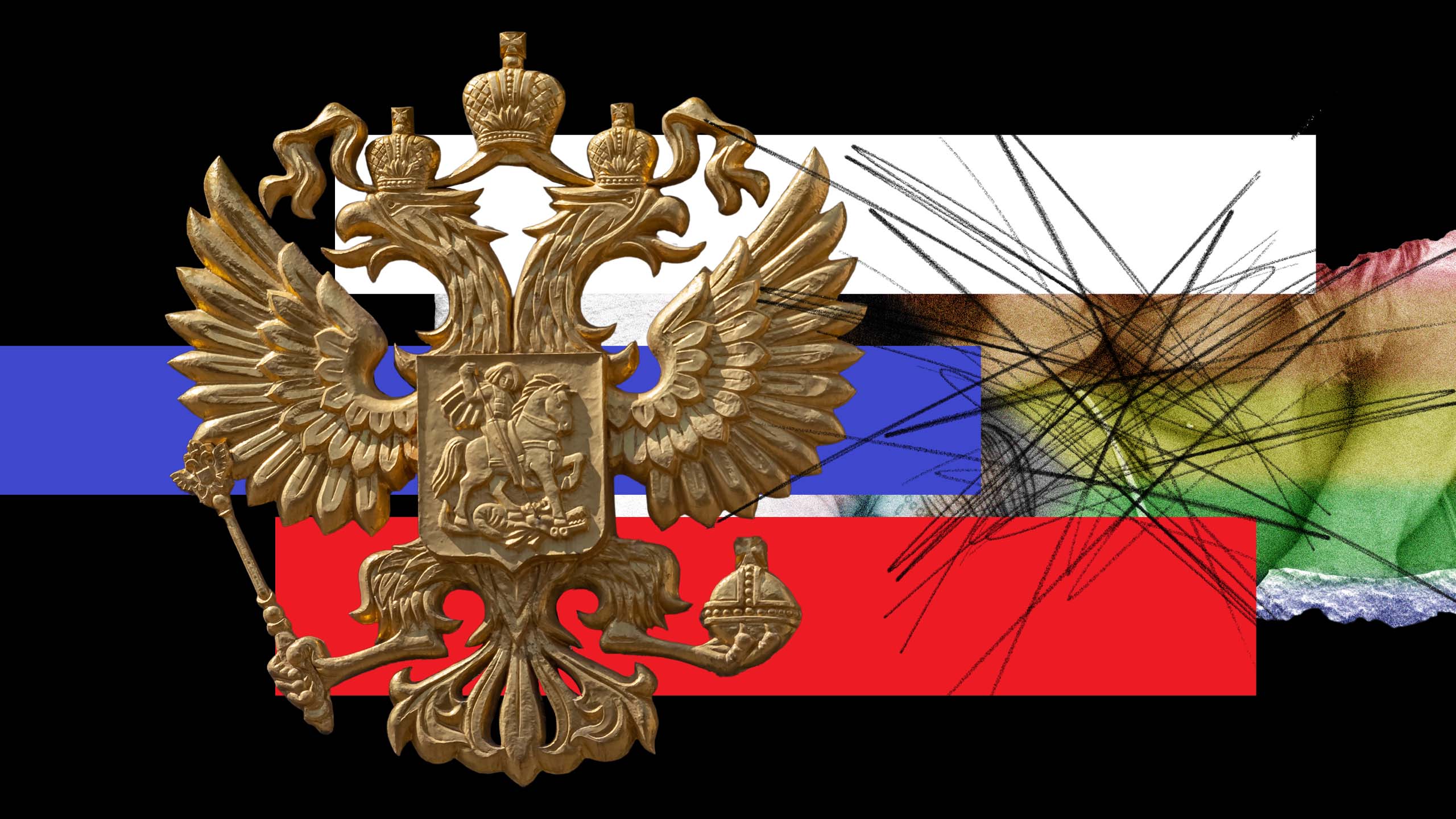Russian leaders are reportedly attempting to expand the country’s ban on youth accessing pro-LGBTQ+ “propaganda” to adults.
Alexander Khinshtein, a parliament lawmaker seated in the Russian Duma, said this week that his colleagues are moving forward with legislation that would broaden the government’s years-old crackdown on the LGBTQ+ community, according to Reuters. Since 2013, Russia has had a law on the books forbidding the spread of information on “non-traditional relationships” to minors, but Khinshtein’s proposal would also apply to materials shared with adults over the age of 18.
“We propose to generally extend the ban on such propaganda, regardless of the age of the audience (offline, in the media, on the internet, social networks and online cinemas),” said Khinshtein, who heads the Duma committee on Information Policy, Information Technologies and Communications, in a July 11 Telegram post.
Should the campaign succeed, LGBTQ+ groups would be effectively banned in Russia. The passage of the “propaganda” law nine years ago has resulted in government leaders continually targeting queer and trans advocacy organizations in attempts to shut them down, although they have not been altogether successful in doing so. In February, a Russian court threw out a lawsuit filed by the Justice Ministry seeking to dissolve Sphere, the charity and legal group that oversees the Russian LGBT Network.
Although the “propaganda” ban was passed under the guise of “protecting” children from LGBTQ+ influence, Russian leaders have long used it to target any form of queer or trans organizing in the country. Cities across the country have banned Pride festivals and trampled any attempts to get a parade off the ground, while police have arrested and beaten activists who protest in support of LGBTQ+ equality.
Lawmakers have fuelled these attacks by repeatedly pushing to intensify the criminalization of LGBTQ+ “propaganda,” which is currently punishable by a fine of one million rubles (over $20,o00 CAD) and 15 days in jail. Last year, parliamentary leaders sought to add amendments to the law criminalizing the spread of information regarding bisexuality and polyamory, which are not explicitly prohibited in its current iteration. It’s unclear if that proposal has passed.
Russian authorities have also labelled LGBTQ+ groups as “foreign agents” in an attempt to stigmatize their activities. The designation, which harkens back to the Soviet era, refers to organizations that receive a significant source of their funding from abroad. Groups labelled with the moniker are required to disclose the status in public-facing communications.
“Demands to legalize same-sex marriages in Russia are a thing of the past. Attempts to impose alien values on our society have failed.”
Khinshtein signalled that Russian lawmakers are likely to debate expanding the “propaganda” ban in the fall, although a discussion has not been formally scheduled. Parliamentary speaker Vyacheslav Volodin suggested that the timing of the proposal was inspired by Russia’s decision to leave the Council of Europe, an international human rights watchdog that had often criticized the country’s leaders over their positions on LGBTQ+ equality.
“Demands to legalize same-sex marriages in Russia are a thing of the past,” Volodin said on Telegram. “Attempts to impose alien values on our society have failed.”
Although Russia pulled out of the Council of Europe following its invasion of Ukraine earlier this year, the entities had repeatedly clashed. Last year, the European Court of Human Rights (ECHR), the council’s enforcement arm, fined Russia for failing to extend legal recognition to same-sex couples. The ECHR has also sanctioned Russia for refusing to allow LGBTQ+ groups to register with the government.
But even if the revised “propaganda” ban does not become law, Russian leaders are likely to continue persecuting the country’s marginalized LGBTQ+ community. In 2020, Russia voted to outlaw same-sex marriage and trans adoptions in its national constitution, and it has even banned trans people from driving.


 Why you can trust Xtra
Why you can trust Xtra


